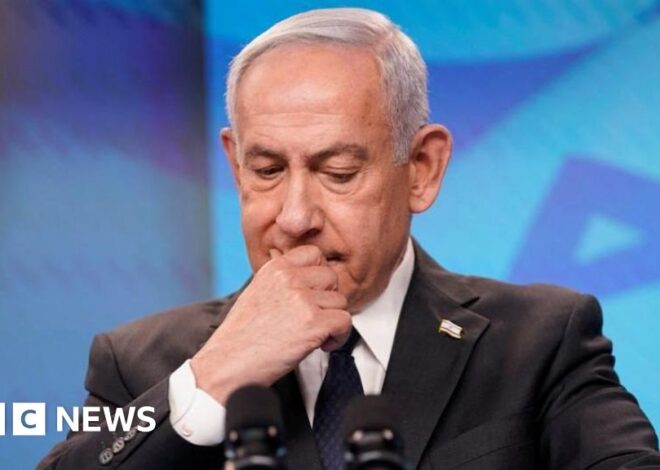Officials announce a 'framework' for keeping TikTok online in the U.S.

Framework Announced for TikTok’s Future in the U.S.
On September 15, 2025, U.S. officials revealed a significant development regarding the future of TikTok, the widely popular short-video platform owned by the Chinese company ByteDance. After extensive discussions in Madrid, Treasury Secretary Scott Bessent announced that a “framework” had been established for a potential agreement with China that could determine the app’s fate in the United States. This announcement marks a potential turning point in the ongoing debate over the app, which has faced scrutiny and regulatory challenges since its rise in popularity.
Background of the TikTok Controversy
The saga surrounding TikTok began as concerns grew over national security, with lawmakers and experts fearing that the app could be used to influence or spy on American citizens. In response to these apprehensions, Congress passed the Protecting Americans from Foreign Adversary Controlled Applications Act last year. This legislation effectively banned TikTok in the U.S. unless it was sold to a non-Chinese owner. The law was signed into effect by former President Joe Biden, who faced legal challenges from TikTok, arguing that the ban infringed upon users’ free speech rights. However, the U.S. Supreme Court upheld the law in early January, allowing the ban to move forward.
The situation became even more complex when former President Donald Trump signed an executive order on Inauguration Day that paused the impending ban. He later issued two additional executive orders to extend this reprieve, which is expected to expire soon. Since then, the Trump administration has been actively seeking a deal for an American company or consortium to acquire TikTok from ByteDance, aiming to keep the app operational in the U.S.
Recent Developments in Negotiations
The announcement of the “framework” came after two days of negotiations between U.S. and Chinese officials in Spain. Bessent stated that President Trump and Chinese President Xi Jinping would hold a conversation on Friday to finalize the details of the agreement. Trump took to social media to express optimism about the negotiations, stating, “A deal was also reached on a ‘certain’ company that young people in our Country very much wanted to save. They will be very happy! I will be speaking to President Xi on Friday. The relationship remains a very strong one!!!”
China’s state news agency, Xinhua, characterized the talks as “candid and in-depth.” However, it remained ambiguous regarding whether the conclusion of the TikTok issue was imminent. The report noted that both sides had reached “a basic consensus on a framework to properly resolve TikTok-related issues through cooperation, reduce investment barriers, and promote relevant economic and trade cooperation.”
The Broader Context of U.S.-China Relations
The negotiations over TikTok are not occurring in isolation; they are part of a broader set of trade discussions between the United States and China. These discussions encompass various complex topics, including tariffs, the trade of fentanyl, microchips, and rare earth elements. The intertwining of TikTok negotiations with these larger trade issues reflects the strategic significance of the app within the context of U.S.-China relations.
As TikTok has grown in popularity—reportedly used by over half of Americans by early 2024—lawmakers have become increasingly concerned about the implications of its ownership. The app’s vast user base has made it a focal point in discussions about digital privacy and national security, leading to calls for stricter regulations on foreign-owned technology platforms.
The Future of TikTok
As the negotiations continue, the outcome remains uncertain. The framework announced by U.S. officials could pave the way for TikTok to remain operational in the U.S. under new ownership, but the details of any potential agreement will be crucial. The upcoming conversation between Trump and Xi could significantly influence the direction of these discussions.
Interestingly, despite his administration’s previous efforts to ban TikTok, Trump has recently expressed a more favorable view of the app, suggesting that it played a role in his reelection campaign in 2024. In August, the White House even launched an official TikTok account, signaling a shift in the administration’s approach to the platform.
Conclusion
The announcement of a framework for resolving the TikTok situation represents a critical juncture in the ongoing debate over foreign technology in the U.S. As negotiations progress, the implications for users, lawmakers, and the broader landscape of U.S.-China relations will continue to unfold. The outcome of these discussions will not only impact TikTok’s future but could also set precedents for how foreign-owned technology companies are treated in the United States.
Key Facts
– U.S. officials announced a “framework” for dealing with TikTok after talks in Madrid.
– Treasury Secretary Scott Bessent confirmed that President Trump and Chinese President Xi Jinping would discuss the deal on Friday.
– Congress passed the Protecting Americans from Foreign Adversary Controlled Applications Act, banning TikTok unless sold to a non-Chinese owner.
– TikTok is owned by Beijing-based ByteDance and has faced scrutiny over national security concerns.
– The app was reportedly used by over half of Americans by early 2024.
Source: www.npr.org

